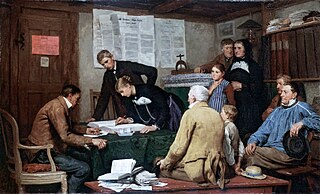
A civil marriage is a marriage performed, recorded and recognised by a government official. Such a marriage may be performed by a religious body and recognised by the state, or it may be entirely secular.

The Gender Recognition Act 2004 is an Act of the Parliament of the United Kingdom that allows people who have gender dysphoria to change their legal gender. It came into effect on 4 April 2005.

Humanists UK, known from 1967 until May 2017 as the British Humanist Association (BHA), is a charitable organisation which promotes secular humanism and aims to represent "people who seek to live good lives without religious or superstitious beliefs" in the United Kingdom by campaigning on issues relating to humanism, secularism, and human rights. It seeks to act as a representative body for non-religious people in the UK.
Civil partnership in the United Kingdom is a form of civil union between couples open to both same-sex couples and opposite-sex couples.
Same-sex marriage is legal in all parts of the United Kingdom. As marriage is a devolved legislative matter, different parts of the UK legalised at different times; it has been recognised and performed in England and Wales since March 2014, in Scotland since December 2014, and in Northern Ireland since January 2020. Civil partnerships, which offer most, but not all, of the rights and benefits of marriage, have been recognised since 2005.

Marriage is available in England and Wales to both opposite-sex and same-sex couples and is legally recognised in the forms of both civil and religious marriage. Marriage laws have historically evolved separately from marriage laws in other jurisdictions in the United Kingdom. There is a distinction between religious marriages, conducted by an authorised religious celebrant and civil marriages conducted by a state registrar. The legal minimum age to enter into a marriage in England and Wales is eighteen years. Certain relatives are not allowed to marry. For foreign nationals, there are also residency conditions that have to be met before people can be married. Same-sex marriage was introduced under the Marriage Act in March 2014.

Humanist Society Scotland is a Scottish registered charity that promotes humanist views and offers Humanist ceremonies. It is a member of the European Humanist Federation and Humanists International.

Marriage law refers to the legal requirements that determine the validity of a marriage, and which vary considerably among countries. See also Marriage Act.

The legal status of same-sex marriage has changed in recent years in numerous jurisdictions around the world. The current trends and consensus of political authorities and religions throughout the world are summarized in this article.
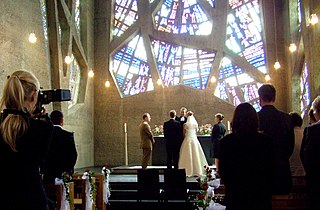
A marriage officiant is a person who officiates at a wedding ceremony.

A humanist celebrant or humanist officiant is a person who performs humanist celebrancy services, such as non-religious weddings, funerals, child namings, coming of age ceremonies and other rituals. Some humanist celebrants are accredited by humanist organisations, such as Humanists UK, Humanist Society Scotland (HSS), The Humanist Society (US), and the Humanist Association of Canada (HAC).
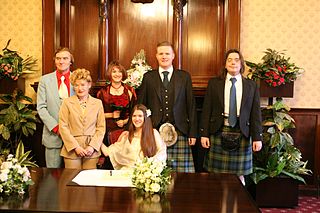
Marriage in Scotland is recognised in the form of both civil and religious unions between individuals. Historically, the law of marriage has developed differently in Scotland to other jurisdictions in the United Kingdom as a consequence of the differences in Scots law and role of the separate established Church of Scotland. These differences led to a tradition of couples from England and Wales eloping to Scotland, most famously to marry at border towns such as Gretna Green. The legal minimum age to enter into a marriage in Scotland is sixteen years and does not require parental consent at any age.
Same-sex marriage in Scotland has been legal since 16 December 2014. As family law is not reserved to the Parliament of the United Kingdom, the Scottish Parliament has legislative competence to make changes to the law on marriage. A same-sex marriage law was approved by the Scottish Parliament in February 2014 and received royal assent on 12 March 2014. It came into effect on 16 December with many civil partners converting their relationships into marriages, while the first same-sex marriage ceremonies occurred on 31 December 2014. Civil partnerships for same-sex couples have been legal in Scotland since 2005.
Same-sex marriage in Northern Ireland has been legal since 13 January 2020, following the enactment of the Northern Ireland Act 2019. The first marriage ceremony took place on 11 February 2020. Civil partnerships have also been available for same-sex couples in Northern Ireland since their introduction by the Government of the United Kingdom in 2005.
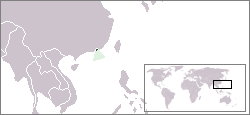
Lesbian, gay, bisexual, transgender (LGBT) persons in Hong Kong, may face legal challenges not experienced by non-LGBT residents.

Marriage in New Zealand is governed by an Act of Parliament. The minimum marriage age is 18 years, or 16 years with consent of the Family Court. Polygamous marriages are not permitted in New Zealand. There are prohibitions of marriages between some relatives and some who are already in a civil union.

The Marriage Act 2013 is an Act of the Parliament of the United Kingdom which introduced same-sex marriage in England and Wales.

Marriage in Australia is regulated by the federal government, which is granted the power to make laws regarding marriage by section 51(xxi) of the constitution. The Marriage Act 1961 applies uniformly throughout Australia to the exclusion of all state laws on the subject.
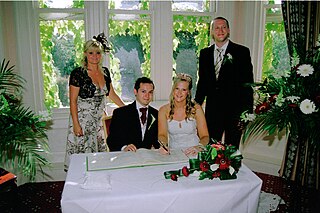
A civil, or registrar, ceremony is a non-religious legal marriage ceremony performed by a government official or functionary. In the United Kingdom, this person is typically called a registrar. In the United States, civil ceremonies may be performed by town, city, or county clerks, judges or justices of the peace, or others possessing the legal authority to support the marriage as the wedding officiant.

Marriage in Ireland is a long-standing institution, regulated by various civil and religious codes over time. Today marriages are registered by the civil registration service, and solemnised by a solemniser chosen from a list maintained by Department of Social Protection. The list includes priests, imams, rabbis, humanist celebrants, civil registrars themselves, and others.














